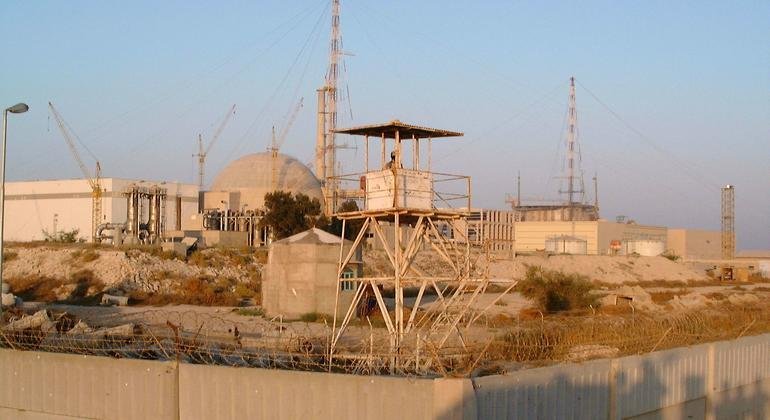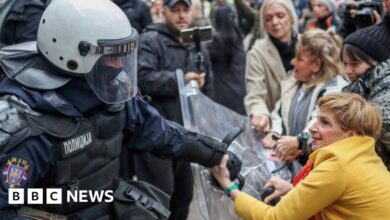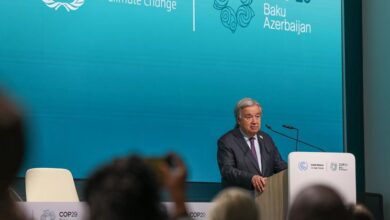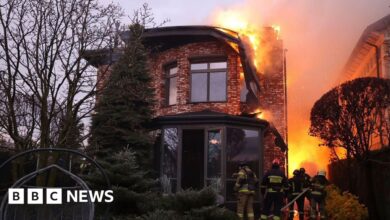Iran’s uranium stockpile increased after 3 years of denied access

Handle Board of Governors of the International Atomic Energy Agency (IAEA), General Director Rafael Grossi shown No progress has been made in resolving outstanding issues.
He mentioned that Iran has not yet implemented the terms of the nuclear safeguards agreement and that the withdrawal of designation of some IAEA inspectors has not yet been reversed.
“These outstanding protection issues…needs to be resolved because [IAEA] to ensure that Iran’s nuclear program is purely for peaceful purposes,” Mr. Grossi emphasized.
He also expressed concern about public statements in Iran regarding its technical ability to produce nuclear weapons and potential changes to the country’s nuclear doctrine, which only further heighten concerns. understanding of the “correctness and adequacy” of the country’s safeguards declarations.
Ukrainian power plant

Nuclear safety, security and safeguards in Ukraine.
Turning to Ukraine, the head of the IAEA warned that the situation at the Zaporizhzhia Nuclear Power Plant “remains precarious” and that all Seven pillars of nuclear safety and security has been “wholly or partially violated”.
These include physical integrity; functional safety and security systems and equipment; radiation monitoring and emergency response; Safe and reliable external power supply; trained staff; uninterrupted logistics supply chain; and open communication.
“Attacks and the frequent disconnection of power lines outside the construction site due to military operations are creating a serious situation.”, Mr. Grossi said.
All six reactor units at the plant have been shut down since April, a safety measure long recommended by the IAEA. Even so, the agency’s ability to ensure plant safety and security remains compromised due to limited access, he added.
He further reported that Ukraine’s four other nuclear power plants continue to face compromised spare parts supply chains and high levels of employee stress.
North Korea’s nuclear program
Mr. Grossi also expressed concern about the continued and further development of the nuclear program of the Democratic People’s Republic of Korea (DPRK).
The IAEA observed intermittent coolant discharges, consistent with operations of the Light Water Reactor (LWR) at Yongbyon, along with reported ongoing activities at the centrifuge enrichment facility .
The nuclear test site at Punggye-ri is still in use and preparing to support new testing.
“The continuation and further development of the DPRK’s nuclear program is one in clear violation of relevant United Nations regulations Security Council Resolution and it is regrettable,” Mr. Grossi said, calling on the country to fully comply with its obligations and cooperate promptly with the IAEA.

Rafael Mariano Grossi (right), Director General of the IAEA, delivers opening remarks at the 1717th Board of Governors meeting held at IAEA Headquarters, in Vienna.
Japan’s Fukushima Daiichi plant
In Japan, the IAEA continues to monitor the release of water treated with the Advanced Fluid Handling System from the Fukushima Daiichi Nuclear Power Plant, which suffered a meltdown 13 years ago, he said.
Mr. Grossi affirmed that the discharge is being carried out in accordance with the safety plan approved by the Japanese Nuclear Regulation Authority.
“Independent expert analysis of the six batches of water released to date has confirmed that the tritium concentration in each batch of ALPS-treated water released to date is much lower than Japan’s operating limits.”
Nuclear technology for sustainable development
In his concluding speech, the IAEA head emphasized the agency’s important role in promoting sustainable development.
“The IAEA is an extremely important vehicle for promoting sustainable development and international peace and security,” he said, calling on member states to continue supporting the work that cannot be done. lack of agency.




